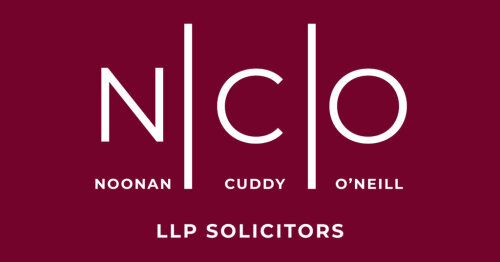Best Travel Accident Lawyers in Loughrea
Share your needs with us, get contacted by law firms.
Free. Takes 2 min.
List of the best lawyers in Loughrea, Ireland
About Travel Accident Law in Loughrea, Ireland
Travel accident law in Loughrea, Ireland, covers incidents and injuries that occur while people are traveling, whether locally or further afield. This area of law applies to accidents involving vehicles, public transport, bicycles, pedestrians, and slips or falls in transport hubs such as train stations or bus depots. When an individual is injured as a result of someone else's negligence or unsafe conditions while traveling, they might be entitled to compensation. The law provides avenues for redress and compensation for victims, emphasizing the importance of safety for all road users and passengers in Loughrea.
Why You May Need a Lawyer
After a travel accident, many people seek legal help to understand their rights and the best path forward. Common situations where legal advice is essential include:
- Dealing with injury claims involving cars, buses, bicycles, or as a pedestrian.
- When an accident involves unclear liability or multiple parties, such as rideshare vehicles or hire cars.
- Accidents on public transport, including buses, trains, or taxis, often require specialist advice about claims against operators or authorities.
- Challenging denied or reduced compensation from insurance companies.
- Understanding time limits and specific procedures for making a claim after a travel accident.
- Injuries on foreign trips organized by travel agencies based in Loughrea, particularly when dealing with international law or different jurisdictions.
An experienced solicitor can help gather evidence, negotiate with insurers, and represent clients in court if needed, ensuring fair compensation is pursued.
Local Laws Overview
In Loughrea, as in the rest of Ireland, travel accident law is primarily governed by the Civil Liability and Courts Act 2004 and Road Traffic Acts. The law emphasizes personal responsibility, but also holds drivers, operators, and authorities accountable for negligence or unsafe conditions. Several key aspects include:
- Statute of Limitations: Usually, a person has two years from the date of the accident to initiate a personal injury claim.
- P.I.A.B. (Personal Injuries Assessment Board): Most personal injury claims, except for medical negligence, must first be submitted to PIAB before the courts can hear them.
- Contributory Negligence: If the injured party is partially at fault, compensation can be reduced to reflect shared responsibility.
- Obligation to Report: Road traffic accidents involving injury or significant damage must be reported to the Gardaí and insurance providers.
- Public Liability: Travel accidents related to unsafe public infrastructure or poorly maintained vehicles may involve claims against local councils or service providers.
Frequently Asked Questions
What should I do immediately after a travel accident in Loughrea?
Ensure safety, seek medical attention, and report the accident to the relevant authorities, such as the Gardaí. Gather details from all parties involved and take note of witnesses if possible.
Do I need to notify my insurance company after an accident?
Yes, you should promptly inform your insurance provider about any accident, regardless of who was at fault. Failing to do so could invalidate your policy or complicate future claims.
How long do I have to make a claim after a travel accident?
Generally, you have two years from the date of the accident to initiate a personal injuries claim. There are exceptions for minors and situations where injuries appear later.
What if the accident was partly my fault?
You may still claim compensation, but the overall amount could be reduced if you are found partially responsible. This is known as contributory negligence.
Do I need to go to court to resolve my claim?
Not always. Many claims are resolved through negotiation or the PIAB process without the need for a court appearance. However, complex or disputed cases might require court involvement.
What evidence should I collect?
Try to collect photographs of the accident scene, contact details of witnesses, medical reports, police reports, and details of all vehicles or parties involved.
Can I claim for psychological injuries following a travel accident?
Yes, compensation can be sought for psychological injuries such as trauma or anxiety, provided they can be supported by medical evidence.
Who decides how much compensation I receive?
Compensation is assessed by the Personal Injuries Assessment Board or, if your case goes to court, by a judge. Compensation is calculated based on factors such as injury severity, impact on quality of life, loss of earnings, and expenses incurred.
What if the other party involved is uninsured or unknown?
The Motor Insurers' Bureau of Ireland (MIBI) handles claims involving uninsured or unidentified drivers, ensuring injured parties can still seek compensation.
Can I claim if the accident happened abroad?
If the trip was booked through an Irish company, or if Irish law applies, you may still be able to pursue a claim. These cases can be complex and require specific legal advice.
Additional Resources
Several resources and organizations can guide and support you after a travel accident in Loughrea:
- Personal Injuries Assessment Board (PIAB) - Handles most personal injury claims in Ireland.
- Motor Insurers' Bureau of Ireland (MIBI) - Assists with claims involving uninsured or unidentified drivers.
- Citizens Information - Provides free, impartial information and advice on legal rights around personal injuries.
- Local Garda Station - Essential for reporting accidents and obtaining official reports.
- Local medical facilities - For proper documentation and treatment of injuries.
Next Steps
If you or a loved one has suffered a travel accident in Loughrea, it is important to act promptly. Gather all the evidence you can and seek medical attention. Notify the Gardaí and your insurance company. Consider speaking with a solicitor who specializes in personal injury law to understand your rights and options. They can help you assess your case, file the appropriate applications, guide you through the PIAB process, and represent you in negotiations or court if needed. Acting early ensures your rights are protected and maximizes your chances of receiving fair compensation.
Lawzana helps you find the best lawyers and law firms in Loughrea through a curated and pre-screened list of qualified legal professionals. Our platform offers rankings and detailed profiles of attorneys and law firms, allowing you to compare based on practice areas, including Travel Accident, experience, and client feedback.
Each profile includes a description of the firm's areas of practice, client reviews, team members and partners, year of establishment, spoken languages, office locations, contact information, social media presence, and any published articles or resources. Most firms on our platform speak English and are experienced in both local and international legal matters.
Get a quote from top-rated law firms in Loughrea, Ireland — quickly, securely, and without unnecessary hassle.
Disclaimer:
The information provided on this page is for general informational purposes only and does not constitute legal advice. While we strive to ensure the accuracy and relevance of the content, legal information may change over time, and interpretations of the law can vary. You should always consult with a qualified legal professional for advice specific to your situation.
We disclaim all liability for actions taken or not taken based on the content of this page. If you believe any information is incorrect or outdated, please contact us, and we will review and update it where appropriate.









